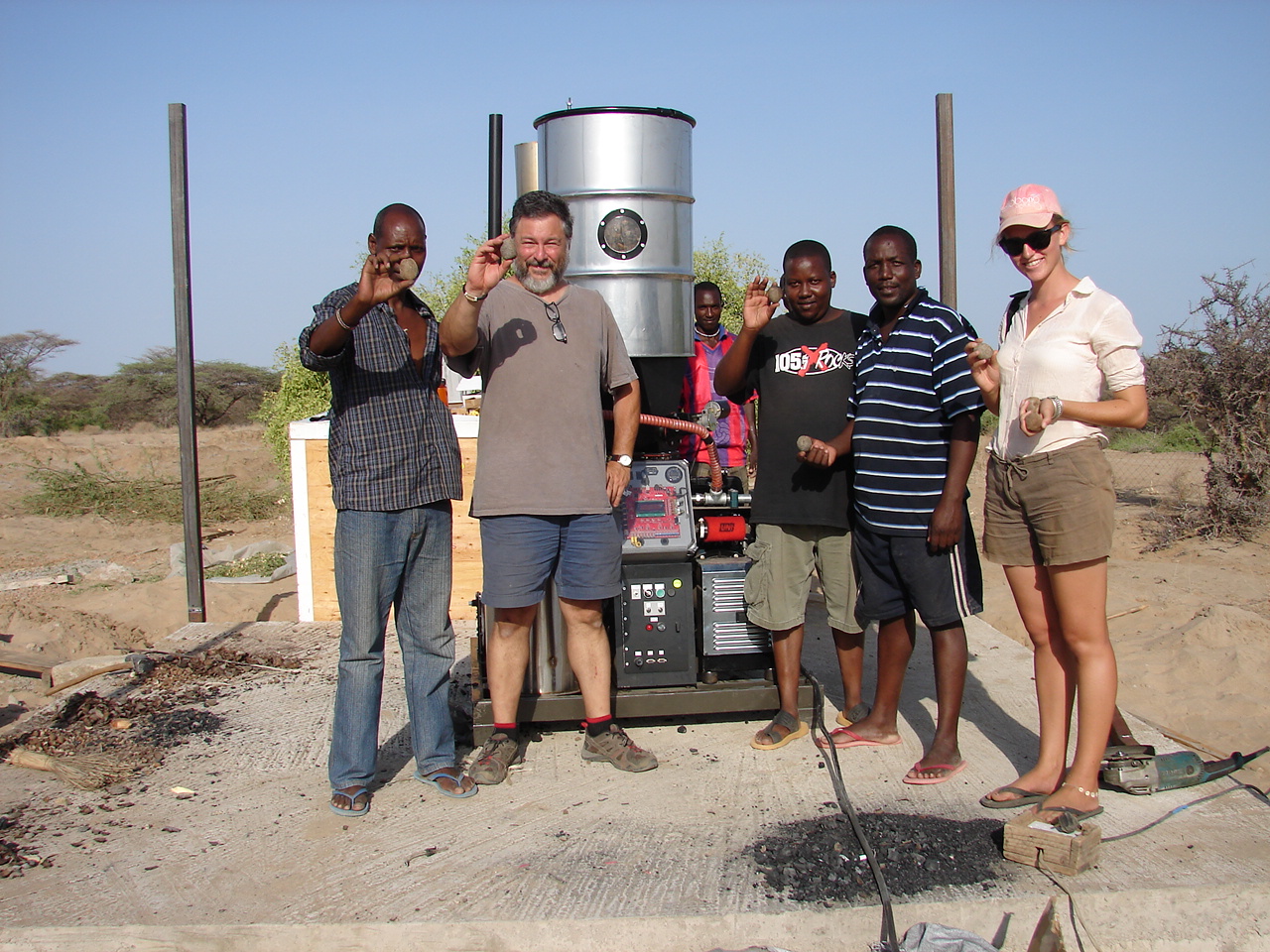![YP w crew holding Doum Plam fruit[2]](http://www.icosa.co/magazine/wp-content/uploads/2013/01/YP-w-crew-holding-Doum-Plam-fruit2.jpg) Imagine staying at the nicest hotel in a city and having the power go out multiple times during the day. Then think about leaving that city knowing that the power lines stop as soon as you reach the countryside. For those in Africa, even intermittent power is a luxury, but reliability isn’t the biggest concern among leaders surrounding energy in Africa. Instead, at this year’s Energy Africa conference, many of the discussions surrounded micro-grids, renewables and other technologies designed to bring power to places that cannot realistically connect to a conventional power grid. In places such as Liberia, where the tropical climate brings cloudy summers with heavy rain, innovative new technologies are being developed to provide cost-effective power options at a reasonable price. These options also have to allow for that power to be produced sustainably in the most remote of environments where the sun does not always shine and the wind does not always blow.
Pushing the limits of energy innovation to transform the landscape of micro-grids and remote power generation is especially important to Yoav Palatnik, a partner at EcoPower Africa. In just a few moments with Palatnik, it is easy to see his enthusiasm on the subject of electrifying the darkest regions on the planet. During one of the conference panels, Applications of Micro-Grids to the African Environment, Palatnik spoke about his All Power Lab’s GEK Power Pallet being distributed to the Liberian people. Whereas the infrastructure in the country is poor, if not nonexistent, already, it is the damage from years of civil war that has left Liberia in a detriment onto itself and the perfect place for emerging distributed technologies.
Imagine staying at the nicest hotel in a city and having the power go out multiple times during the day. Then think about leaving that city knowing that the power lines stop as soon as you reach the countryside. For those in Africa, even intermittent power is a luxury, but reliability isn’t the biggest concern among leaders surrounding energy in Africa. Instead, at this year’s Energy Africa conference, many of the discussions surrounded micro-grids, renewables and other technologies designed to bring power to places that cannot realistically connect to a conventional power grid. In places such as Liberia, where the tropical climate brings cloudy summers with heavy rain, innovative new technologies are being developed to provide cost-effective power options at a reasonable price. These options also have to allow for that power to be produced sustainably in the most remote of environments where the sun does not always shine and the wind does not always blow.
Pushing the limits of energy innovation to transform the landscape of micro-grids and remote power generation is especially important to Yoav Palatnik, a partner at EcoPower Africa. In just a few moments with Palatnik, it is easy to see his enthusiasm on the subject of electrifying the darkest regions on the planet. During one of the conference panels, Applications of Micro-Grids to the African Environment, Palatnik spoke about his All Power Lab’s GEK Power Pallet being distributed to the Liberian people. Whereas the infrastructure in the country is poor, if not nonexistent, already, it is the damage from years of civil war that has left Liberia in a detriment onto itself and the perfect place for emerging distributed technologies.
In many regions such as Liberia, farmers, their families and their customers survive hand-to-mouth, or in a best case scenario, three days due to the lack of refrigeration, transportation constraints and harvesting limitations. By allowing farmers to process raw foods into something marketable right on the spot, the GEK allows those without access to affordable energy the ability to start a business with the energy they need to run industrial operations in remote areas. The applications of the GEK are limitless in emerging cultures, and this is evident at the light that sparked in Palatnik as he spoke about the technology. In an interview after his panel, Palatnik spoke of the possibilities EcoPower’s biomass generator technology can provide in remote areas of Africa, referencing an example of using the application successfully in Indonesia.
In this example, Palatnik described how the generator runs on agricultural byproducts, processing raw plant material deep in the remote jungles of the island that are rapidly being deforested. In Palatnik’s approximation, these generators are spurring a new industry in Indonesia that was not possible before by providing vital power for the production of a new kind of low-glycemic sugar that can be only be derived from a fruit tree in the county’s rainforests. Without proper production after being harvested, the fruit byproduct rapidly ferments into a viscose-type liquid with similar properties to moonshine and is unusable. By using EcoPower’s generator, this small processing facility can now properly produce the sugar for transport and sale. The unintended benefit of producing this fruit from Borneo’s Indonesia region is that it has a high economic price tag. This rare low-glycemic fruit tree can only grow in Borneo’s rainforest ecosystem, which gives it a value to the locals that it didn’t have before. With access to power, parts of the rainforest are being saved so the trees can be grown and harvested.
Through various installations and product enhancements, EcoPower’s biomass generation technology is being rapidly developed to provide larger amounts of power with a very fast and easily deployable system. In a place that has been desperately waiting for a technology like this, Palatnik has strategically aligned EcoPower to capitalize on the African marketplace. His enthusiasm for the auxiliary benefits of this technology can only leave one optimistic for the future of energy in Africa. Perhaps the continent can move from no power to environmentally friendly power with technologies such as this. With Liberia as the testing ground, the future of EcoPower Africa and the application of the GEK Power Pallet will be an interesting story to watch unfold.

